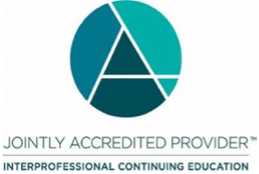Where Do I Begin? When Narcissism and Addiction Co-Occur
Where Do I Begin? When Narcissism and Addiction Co-Occur
Presented By
-
 Ramani Davursula, PhDMore Info
Ramani Davursula, PhDMore Info
Brought to You By
Dates and Times
-
-In-Person
Location
-
Pacific Hall BWalt Disney World Dolphin Resort
Lake Buena Vista, FL 32830
Maladaptive personality styles, particularly antagonistic patterns such as narcissism, can significantly complicate assessment, treatment, and long-term management with individuals living with addiction and substance use disorders (SUDS). Relational and intrapsychic dynamics can present as part of both substance use and antagonistic personality styles, and we also observe significant interpersonal disruption which will impact treatment engagement and relapse management. It is also known that substance use/addiction and narcissism overlap with 25-50% of persons with narcissistic personality disorder (NPD) presenting with a co-occurring SUD (Stinson et al., 2008). But we often overlook personality when working with clients living with addiction, and personality assessment often does not inform treatment planning. This presentation will offer a comprehensive of narcissism and NPD, including the AMPD formulation offered by DSM, relationship dynamics, developmental and etiological issues including trauma, and the overlap between narcissism and substance use disorders. We will also review the overlaps and discrimination between narcissism and antisocial personality disorder/psychopathy. Dynamics such as shame, saving face, and validation seeking as part of the recovery process will also be addressed. Working with narcissistic clients who are managing co-occurring substance use remains a significant challenge for clinicians, and can raise a sense of helplessness, frustration, and other potentially problematic counter-transferential dynamics. Intersectional issues related to race, social class and economic status will also be addressed. Tips for maximizing clinician efficacy in working with this population will be addressed, as will the important of realistic expectations not only for the clinician but also for family, partners/spouses, and other stakeholders.
- • Counselors
- • Addiction Counselors
- • Social Workers
- • Licensed Marriage and Family Therapists
- • Physicians
- • Nurses
- • Psychologists
At the end of this course, participants will be able to:
-
Define Narcissistic Personality Disorder and Antagonism and list at least 3 diagnostic criteria.
-
Describe at least 1 component of each "subtype" of narcissistic presentations, specifically grandiose, vulnerable, malignant, and communal.
-
Compare overt and covert grandiosity, noting at least 1 difference.
-
Describe at least 2 aspects of the relationship between narcissism and substance use/addiction.
-
List at least 1 component of the role of dysregulation, impulsivity and etiological issues.
-
Identify at least 2 issues related to assessment, management and treatment and describe at least 2 barriers to treatment and management of substance use disorder raised by narcissism.
-
Identify at least 2 tools to optimize the treatment of Narcissistic Personality Disorder.
-
Kaufman, S.B., Weiss, B., Miller, J.D., & Campbell, W.K. (2020). Clinical correlates of vulnerable and grandiose narcissism: A personality perspective. Journal of Personality Disorders, 34(1), 107-130.
-
Kjærvik, S. L., & Bushman, B. J. (2021). The link between narcissism and aggression: A meta-analytic review. Psychological Bulletin, 147(5), 477–503. https://doi.org/10.1037/bul0000323
-
Yakeley, J. (2018). Current understanding of narcissism and narcissistic personality disorder. BJPsych Advances, 24(5), 305-315. doi:10.1192/bja.2018.20
TPN.health has been approved by NBCC as an Approved Continuing Education Provider, ACEP No. 7267. Programs that do not qualify for NBCC credit are clearly identified. TPN.health is solely responsible for all aspects of the programs.
Course meets the qualifications for hours of continuing education credit for LPCCs as required by the California Board of Behavioral Sciences. TPN.health is approved by the California Association of Marriage and Family Therapists to sponsor continuing education for LPCCs. TPN.health maintains responsibility for this program/course and its content.
Trusted Provider Network, LLC is recognized by the New York State Education Department’s State Board for Mental Health Practitioners as an approved provider of continuing education for licensed mental health counselors. #MHC-0220.
This course has been approved by TPN.health, as a NAADAC Approved Education Provider, for educational credits. NAADAC Provider #198061, TPN.health is responsible for all aspects of the programming. Counselor Skill Group: Legal, Ethical and Professional Development.
TPN.health, #1766, is approved to offer social work continuing education by the Association of Social Work Boards (ASWB) Approved Continuing Education (ACE) program. Organizations, not individual courses, are approved as ACE providers. State and provincial regulatory boards have the final authority to determine whether an individual course may be accepted for continuing education credit. TPN.health maintains responsibility for this course. ACE provider approval period: 03/31/2022 – 03/31/2025. Social workers completing this course receive 1 continuing education credit.
Course meets the qualifications for hours of continuing education credit for LCSWs as required by the California Board of Behavioral Sciences. TPN.health is approved by the California Association of Marriage and Family Therapists to sponsor continuing education for LCSWs. TPN.health maintains responsibility for this program/course and its content.
Trusted Provider Network, LLC is recognized by the New York State Education Department’s State Board for Social Work as an approved provider of continuing education for licensed social workers #SW-0654.
Course meets the qualifications for hours of continuing education credit for LCSWs as required by the California Board of Behavioral Sciences. TPN.health is approved by the California Association of Marriage and Family Therapists to sponsor continuing education for LMFTs. TPN.health maintains responsibility for this program/course and its content.
Trusted Provider Network, LLC is recognized by the New York State Education Department’s State Board for Mental Health Practitioners as an approved provider of continuing education for licensed marriage and family therapists #MFT-0097.

Accreditation Statement
In support of improving patient care, this activity has been planned and implemented by Amedco LLC and TPN.health. Amedco LLC is jointly accredited by the Accreditation Council for Continuing Medical Education (ACCME), the Accreditation Council for Pharmacy Education (ACPE), and the American Nurses Credentialing Center (ANCC), to provide continuing education for the healthcare team.
Amedco Joint Accreditation #4008163.
Physicians (ACCME)
Amedco LLC designates this live activity for a maximum of 1 AMA PRA Category 1 CreditsTM. Physicians should claim only the credit commensurate with the extent of their participation in the activity.

Accreditation Statement
In support of improving patient care, this activity has been planned and implemented by Amedco LLC and TPN.health. Amedco LLC is jointly accredited by the Accreditation Council for Continuing Medical Education (ACCME), the Accreditation Council for Pharmacy Education (ACPE), and the American Nurses Credentialing Center (ANCC), to provide continuing education for the healthcare team.
Amedco Joint Accreditation #4008163.
Nurses (ANCC) Credit Designation
Amedco LLC designates this activity for a maximum of 1 ANCC contact hours.
TPN.health is approved by the American Psychological Association to sponsor continuing education for psychologists. TPN.health maintains responsibility for this program and its content.
-
Workshop Begins
-
Workshop Ends

